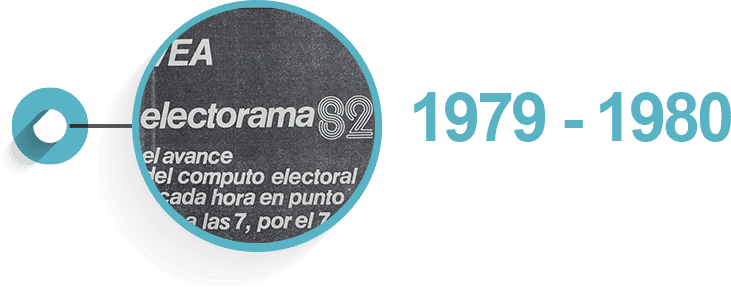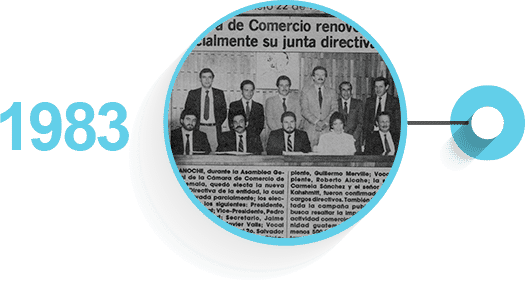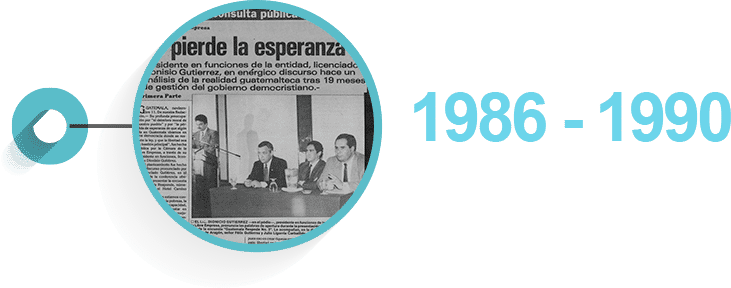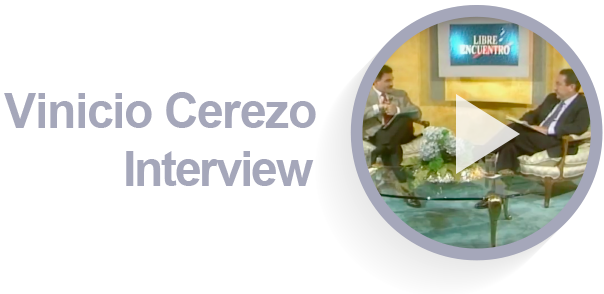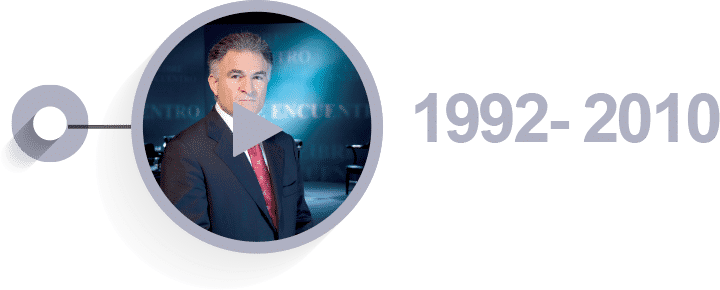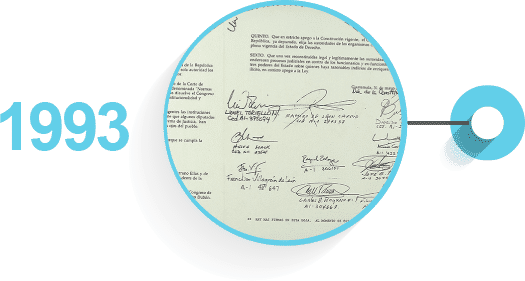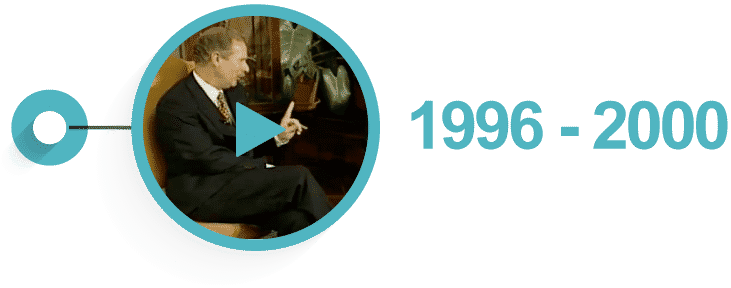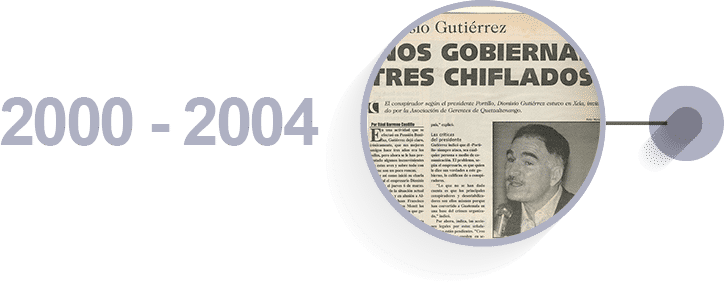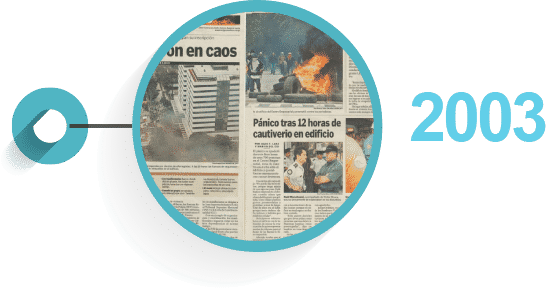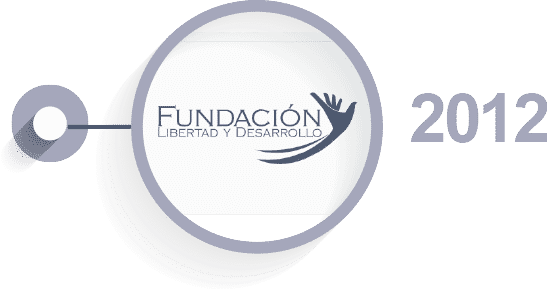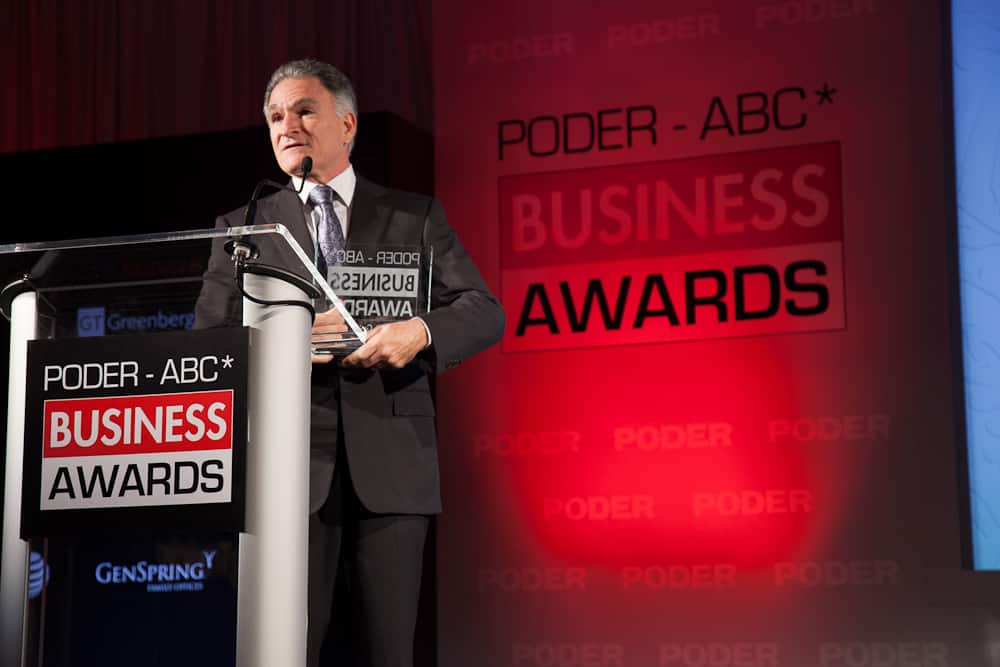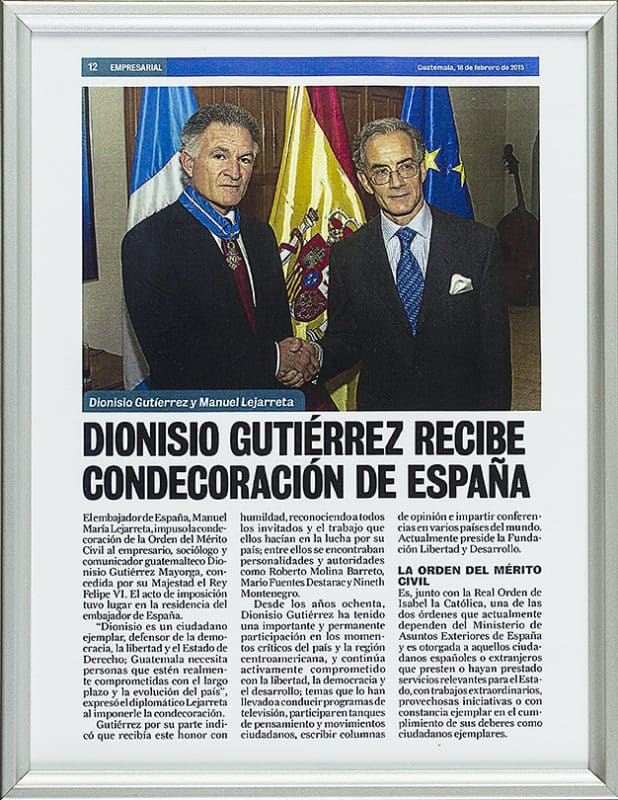
Nací en Guatemala, capital, en 1959, pero pasé los primeros 10 años de mi vida en Xela, una ciudad al occidente del país. Mis amigos de la niñez, la mayoría indígenas, fueron mis compañeros de aventuras en las calles del barrio en que viví, donde el Parque Benito Juárez fue nuestro jardín. Nos encantaba jugar canicas, tipachas y al futbol.
Fui buen estudiante, sigo intentando ser buen deportista, y las injusticias siempre me indignaron. En 1969, mis padres decidieron volver a la capital. No me gustó, pero con el paso del tiempo me acostumbré.
A los 15 años perdí a mi padre en un accidente aéreo que nunca se aclaró, y a los 17 empecé a trabajar. Aprendí del trabajo y de la vida en tiempos de crisis que nunca pasaban. A los 19, a media carrera en la universidad y después de sufrir en lo personal las consecuencias y los golpes del conflicto armado, decidí participar en la vida cívica de Centroamérica. Me di cuenta de que no tenía sentido trabajar duro para desarrollar una empresa en una región que se derrumba. Las cosas no han cambiado mucho.
Desde un comité de estudiantes y un frente cívico – éramos 4 gatos – escribí denuncias y protestas contra la dictadura militar y contra la guerrilla marxista. Para las elecciones de 1982, con 23 años, organicé un esfuerzo al que llamamos “Electorama” para auditar el resultado. Aquello fue un fraude electoral grotesco y lo denuncié públicamente.
Llevo 4 décadas de estar en el ojo del huracán de todas las crisis en todos los gobiernos de la región. No ha pasado uno que no me haya perseguido o atacado por mi activismo. Soy y seré siempre un irreverente defensor de la libertad, la democracia, la justicia y el Estado de Derecho, los fundamentos de la República.
Después de presidir durante 7 años la Cámara de la Libre Empresa, en 1990, con 31 años, inicié el programa de televisión Libre Encuentro. Aquella tribuna me permitió conocer la región, me obligó a estudiar y me permitió dar buenas batallas. Fue la época de mayor aprendizaje en mi vida.
En el ocaso de 2010, después de 20 años de televisión, de denuncia, protesta y propuesta, dejé mi posición en la empresa en la que trabajé 34 años y cerré Libre Encuentro. Cansado y perseguido me fui del país. Me había quedado solo en la batalla cívica. Centroamérica estaba al borde del precipicio. El socialismo del Siglo XXI estaba a punto de tomar la región. La amenaza continúa.
En Fundación Libertad y Desarrollo, con un equipo extraordinario de profesionales, promovemos y desarrollamos varias iniciativas para América Latina. Trabajamos con decisión y compromiso en varios esfuerzos que buscan alcanzar acuerdos mínimos para aliviar las crisis y para aprovechar las extraordinarias oportunidades que tienen nuestros países.
Desde el nuevo programa de televisión, Razón de Estado, damos lo mejor de nosotros para defender y promover los valores y las ideas que construyen naciones libres, justas y democráticas, para que todos tengamos la oportunidad de alcanzar paz y bienestar.
Espero algún día encontrar las palabras para agradecer a mi familia su apoyo incondicional a pesar de las molestias y los riesgos que mi lucha cívica les ha causado.
Dionisio Gutiérrez
Initial Civic Footsteps
Since he was in college, Dionisio Gutiérrez was part of various student groups that, despite the violent and fearful environment, denounced both the government military acts and the marxist guerrilla.
One of the flagship projects directed by Gutiérrez was “Electorama 82”, an attempt made by young college students to audit the election process of March 7, 1982. The very same day of the election, Electorama denounced Jeeps from the army which had seized ballot boxes, in an open transgression against the procedures for counting votes. The result of the election was the fraudulent victory of the former Minister of Defense, Ángel Aníbal Guevara. However, the public accusations about the election fraud, including those from Electorama, set the foundations for the movements of March 23, 1982. This coup d’etat was generated by the stir of discontent among young soldiers for the fraud occured in March 1982.
He also participated in press releases for “Comité Estudiantil contra el terrorismo (Student Committee Against Terrorism)” and “Frente Estudiantil Ciudadano (Student Civic Front)” in the independent newspaper, El Imparcial.
The Government of Vinicio Cerezo
Dionisio Gutiérrez criticized the government of Vinicio Cerezo, the first regime of the democratic era in Guatemala, particularly for his inaccuracies in social policy and economy. Gutiérrez pointed out the government’s evident inability to improve the economic indicators of the country, specifically, for not having responded to the growing inflationary wave at the end of the eighties.
Likewise, Gutiérrez refuted that beyond democratic opening, Guatemala required conditions for institutional strengthening, such as, the development of professional public servants. Additionally, Gutiérrez advocated for social policies that would contribute to the improvement of the country’s living standard, a current necessity, considering the growing frustration in citizens who felt that the democratically elected government failed to fulfill their expectations for a better life.
Libre Encuentro
“Libre Encuentro” was a television program directed by Dionisio Gutiérrez. It aired weekly for twenty years on Sundays on prime time in Guatemala and other parts of Central America and the United States. This tribune promoted critical analysis, propositive criticism, propositive debate and principles such as liberty, democratic strengthening, and social and human development. For two decades, Libre Encuentro became a reference for Guatemalan public opinion and reached record ratings in the country´s audience.
Serranazo
On May 25, 1993, President Jorge Serrano Elías emitted a Presidential Decree in which he ordered the dissolution of the Congress of the Republic, the destitution of Magistrates of the Supreme Court of Justice, the Constitutionality Court and the Human Rights Prosecutor. After days of political crisis, many Guatemalan citizens, among them Dionisio Gutiérrez, created and published a declaration better known as “The Signers Below”, where they rejected the violations to the Constitution on behalf of Serrano Elías, describing him as a “dictator” and demanding his irrevocable resignation, as well as, the restitution of the public powers of the Republic.
After the political crisis of May, 1993, due to the position that Gutiérrez had in his television program, Libre Encuentro, and his strong critics to the government of Serrano and his participation in the civic movement which was initiated by the coup d’état, the comments and threats against him and on behalf of Serrano sympathizers multiplied.
The Government of Álvaro Arzú
Throughout the first decade of the nineties, Dionisio Gutiérrez reaffirmed his commitment of finding a way of negotiating away from the internal armed conflict. In 1996, after Álvaro Arzú reached power, the negotiation process between the State of Guatemala and Unidad Revolucionaria Nacional Guatemalteca (URNG) was strongly defined. This process ended on December 29, 1996 when the Agreement on Firm and Lasting Peace was signed.
Throughout the first decade of the nineties, Dionisio Gutiérrez reaffirmed his commitment of finding a way of negotiating away from the internal armed conflict. In 1996, after Álvaro Arzú reached power, the negotiation process between the State of Guatemala and Unidad Revolucionaria Nacional Guatemalteca (URNG) was strongly defined. This process ended on December 29, 1996 when the Agreement on Firm and Lasting Peace was signed.During this process, “Libre Encuentro” became a tribune that allowed the discussion of the great challenges in peace construction, particularly those related to institutional strengthening, demobilization of combatant groups, the guiding role of United Nations in this process, or the fulfillment of the Agreements.
In the context, Gutiérrez was very critical of the stance and involvement of President Álvaro Arzú before the press and communication media. Gutiérrez has always demonstrated his commitment towards the construction of a solid and independent media with respect for the liberty of press and freedom of expression as fundamental pillars for a solid democracy.
The Government of Alfonso Portillo
When Alfonso Portillo reached the presidency in January 2000, Gutiérrez became one of the voices that most actively questioned and audited the administration. The tribune, “Libre Encuentro”, became a space to present, analyze and expose the various complaints of corruption against the Portillo administration and many other important government authorities. The constant auditing of Libre Encuentro prompted President Portillo into a personal vendetta against Gutiérrez.
At the beginning of 2003, President Portillo made direct attacks against the media. In some declarations he describes the media as “clowns” and assured that “they were at the service of dubious interests” and referred to Dionisio Gutiérrez as “the owner of the circus”. In response to these accusations, Gutiérrez stated that Portillo described as conspiring and disruptive to “all those who tell him his mistakes”.
Black Thursday
By mid-year of 2003, the political party Frente Republicano Guatemalteco (FRG) had devised a plan to take control of the country´s high courts, hoping it would allow the registration of its founder, General Efraín Ríos Montt, as Presidential candidate. However, by constitutional mandate, leaders of coup d’états cannot aspire to the Presidency of the Republic, and Ríos Montt was the appointed head of state after the movement of March 23, 1982.
While the scheme to violate the constitutional order was being prepared, the tribune of “Libre Encuentro” provided the opportunity to present to the public opinion of national and international viewers the illegal actions that were being committed by the official party.
As a result, on July 24, 2003 many people who were affected by the opposition towards the presidential candidacy of Efraín Ríos Montt, took over different parts of the city. Many places and people were affected by this besiege, especially Centro Empresarial, where the corporate offices of Multi-inversiones are located. Armed with stones and Molotov cocktail bombs, these mobs attacked innocent civilians, damaged private property and affected citizen mobility. During this tumult, a pressman was killed while covering the story.
After twelve hours of the siege, more than 900 employees who had been trapped in Centro Empresarial were rescued. By the end of the evening, the protestors retreated.
Opposition towards the Government of UNE
On Thursday, July 1, 2010, the government of the former president Álvaro Colom, denounced in private broadcasting a “destabilizing maneuver composed of attacks to security forces and reports in the media”. In this public complaint, the president accused Dionisio Gutiérrez as one the persons behind this plan. In view of this comment, Gutiérrez expressed “With all due respect, I ask that you not do fall into the trap of totalitarianism”.
Months later, Dionisio Gutiérrez would lead one the most controversial episodes of 2010. Within the framework of Encuentro Nacional de Empresarios (ENADE), during a live transmission of the television program Libre Encuentro, Gutiérrez denounced the intention of President Álvaro Colom and his wife, Sandra Torres, to impose against constitutional order their intention to illegally register the presidential candidacy of Torres (banned by constitutional mandate) and of aspiring to build a Chavist-Bolivarian regime in Guatemala. The accusation was made by Gutiérrez while Colom and Torres were sitting in the audience.
This episode triggered an illegal persecution against Gutiérrez and the business group of Corporación Multi-Inversiones. Due to the political persecution of the government, Gutiérrez was forced to abandon the program, “Libre Encuentro” and left the country claiming, among other reasons, the “notable increase in various types of harassment incurred from intimidation to life threats” against him.
Liberty and Development Foundation
Upon his return to Guatemala, Dionisio creates Fundación Libertad y Desarrollo (Liberty and Development Foundation), an independent think tank, private and proactive, dedicated to the study and analysis of social, economic, and political topics for the promotion of values and principles in a free society.
The Foundation´s vision is to become a relevant institution in the undertaking of unifying and transforming the Central American region to accomplish in each of its countries consolidated democracies with solid Rule of Law that contribute to social, economic and political development.
Its task focuses on generating ideas, promoting dialogue, proposing solutions and disseminating knowledge for Guatemala and the Central American region, based on values of liberty, democracy, and Rule of Law.
Dimensión
He was the managing director of the weekly program, Dimensión, broadcast in Channel 3 from 2013 to 2018. The program, “Dimensión” presented a magazine televised format and became a platform for expression and participation that intended to generate reflection, action and proposals in terms of complex problems that affect Guatemalan and Central American societies.
The objectives of the program were focused on democratic strengthening, Rule of Law, and social and human development, while working on transmitting optimistic messages, entrepreneurship, creativity, and civic participation that helped demonstrate that development is possible when citizens, through personal and social initiatives become committed with achieving it.
Confrontation with Partido Patriota
In July 2015, Guatemala was experiencing agitated moments. Some months before, the Prosecutor had revealed the case of corruption known as “La Línea”, which placed the President of the Republic, Otto Pérez Molina and the ex-president, Roxana Baldetti, under suspicion for the direct participation in high-level corruption, revealing to citizens the level of looting of State funds run by the administration of Partido Patriota.
In that context, Dionisio Gutiérrez published an open letter in which he requested the resignation of President Otto Pérez Molina, based on the suspicions of corruption against him and the deplorable administration of his government. Gutiérrez was the first businessman to publically request the President’s resignation. Pérez Molina resigned on September 3, 2015, after the Prosecutor petitioned to have the presidential immunity removed, when it was proven that he and the ex-president Baldetti, were leaders in La Línea.
Razón de Estado (2018)
On September 19, 2018, after being retired for three years from television, Dionisio Gutiérrez returns to the screens of the country with the program “Razón de Estado”, transmitted by Guatevisión every Wednesday at 21:30. It is a tribune for debate and reflection; committed with liberty, democracy and Rule of Law.
Leaving behind traditional approaches, with a combination of formats such as interviews, panel discussions, and reports, Razón de Estado seeks to provide a modern approach to complex topics in Guatemala and the hemisphere.
Awards
In 2012, the Power Awards and the American Business Council of the United States recognized the efforts and the trajectory of Gutiérrez when he was granted the award “Empowering Democracy”.
In 2014, His Majesty, King VI of Spain granted him the high honor of the Order of Civil Merit in homage to Dionisio Gutiérrez, an order granted to exemplary citizens who have given service of relevance to the State and whose extraordinary work is a model of coherence in the pursuit of Rule of Law, democracy and liberty.
Did you Know…








